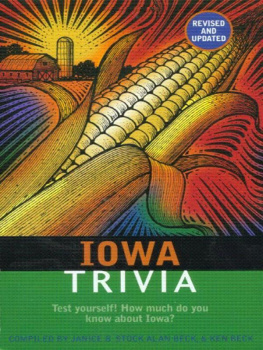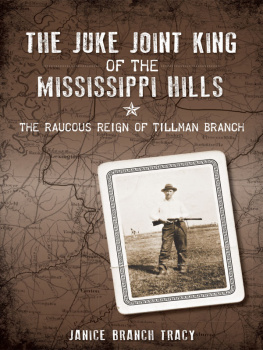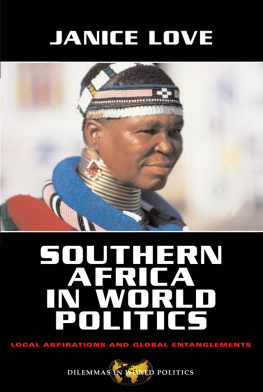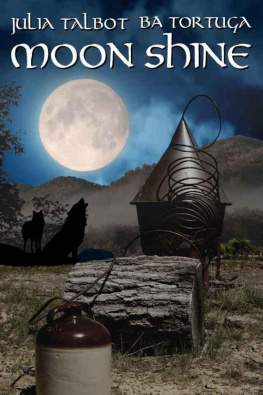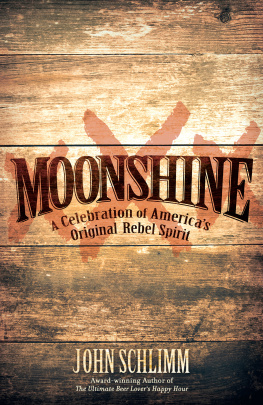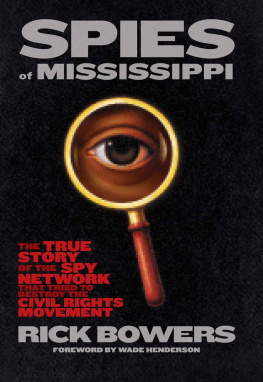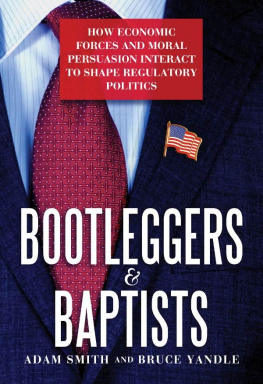Published by The History Press
Charleston, SC 29403
www.historypress.net
Copyright 2015 by Janice Branch Tracy
All rights reserved
First published 2015
e-book edition 2015
ISBN 978.1.62585.288.5
Library of Congress Control Number: 2014957213
print edition ISBN 978.1.62619.760.2
Notice: The information in this book is true and complete to the best of our knowledge. It is offered without guarantee on the part of the author or The History Press. The author and The History Press disclaim all liability in connection with the use of this book.
All rights reserved. No part of this book may be reproduced or transmitted in any form whatsoever without prior written permission from the publisher except in the case of brief quotations embodied in critical articles and reviews.
This book is dedicated in memory of Hazel Brannon Smith and William Hodding Carter II, both well-known Mississippi journalists who used the power of the press in the best way of allensuring the peoples right to know. Without their efforts in reporting the news, much of this story would not have been possible.
There is a tide in the affairs of men, which, taken at the flood, leads on to fortune.
William Shakespeare
Preface
Growing up in a state where the sale of alcohol was illegal did not seem unusual to me or to others around me. And other individuals who lived in Mississippi during its years of state prohibition will remember how simple it was to buy moonshine or bonded liquor. When a man, woman or, in many instances, young minor wanted to buy alcohol of any type or size, they could do so, provided they had the cash, knew where to go and were not afraid they would be arrested. Although liquor was sold illegally throughout the state, its sales were more concentrated in several regions, specifically the Mississippi River towns, counties in the Delta, Rankin County east of Jackson and the three-county area that encompassed Biloxi and Gulfport, located along Mississippis Gulf Coast.
Prior to 1966, several small towns throughout the state became well known for their enclaves of liquor dealers, juke joints and nightclubs. One of these places was Durant, a Holmes County railroad town located on U.S. Highway 51 about an hour or so north of Jackson where numerous liquor and gambling establishments existed in the 1940s and 1950s. Across the Pearl River from Jackson, near the historic town of Brandon and the present-day Rankin County cities of Flowood and Pearl, the Gold Coast became a haven for local and out-of-state operators whose businesses offered illegal liquor and various other forms of entertainment. Throughout the Mississippi River counties, from Natchez along U.S. Highway 61 north to Clarksdale and beyond, illegal liquor was as plentiful and as available as water from the Big Muddy. Between the 1940s and early 1960s, the historic river town of Vicksburg became a haven for several large illegal liquor wholesalers who purchased their supplies from Louisiana, just across the river, where alcohol was not only plentiful but also legal. And numerous other rural counties north, east and south of Jackson were well known for their moonshine and illegal bonded liquor operations.
The best-known area of all illegal liquor activity statewide, however, may have been Mississippis popular resort destination referred to as the Mississippi Gulf Coast. Elegant hotels, restaurants and rowdy nightclubs alike sold liquor openly along the thirty-five-mile stretch of sandy Gulf of Mexico beaches, long before the present-day chain hotels and Las Vegas style casinos were built. Among the better-known Gulf Coast resort hotels and nightclubs that sold illegal liquor to guests were the Isle of Caprice Hotel and Resort, the Markham Hotel, Broadwater Beach, the Edgewater Gulf, the Buena Vista Hotel and Resort, the White House and the popular Gus Stevens Lounge. In 1951, the Kefauver Hearings brought nationwide attention to the Mississippi Gulf Coast area, focusing particularly on illegal gambling and liquor and their effects on airmen stationed at Biloxis Keesler Air Force Base. Between 1952 and 1962, three state governors ordered National Guard raids on Gulf Coast liquor and gambling establishments.
In early 1966, a February raid on the Jackson Country Club in north Jackson, Mississippi, brought state and national attention to the liquor issue, a subject that Mississippis residents and lawmakers alike had wrestled with for years. With the eyes of the country on the last holdout state in the nation, and a need for political change at its zenith, Mississippi lawmakers decided to take action. A few months later, proponents of prohibition, as well as its increasing number of critics, witnessed a massive fusion of moral and legal suasion when the Mississippi state legislature passed a local option law. And when Governor Johnson signed the law that became effective on July 1, 1966, a new era of social change began in the state of Mississippi.
Acknowledgements
First, I want to thank my family for their patience and understanding during the extended period of time it took to write this book. They never complained when I suggested on numerous occasions that we go out to dinner after an all-day marathon of research, writing, editing and rewriting, especially when my mind and my body needed a serious rest. I especially appreciate my husbands willingness to listen as I read sections of the book aloud to him in an effort to test the clarity of the words I had written on someone elses ears. Secondly, I want to convey a world of gratitude to Christen Thompson, senior commissioning editor at The History Press, and to the rest of the publishers staff, as well. Christens knowledge and experience were invaluable to me, and her delightful personality and insightfulness made the entire publishing process a pleasant and enjoyable one. To Luster Bayless, Fred Blackwell, Jim H. Branch, Kathy Dodgen, Don Drane, Ken Hydrick Flessas, Tom Givens, Rusty Hanna, Barbara Jones Kincaid, Darryl Lewis, Davie Ricardo Lindsey, Bill F. Minor, Ross Nesbit, Allen Peacock, Gene Harlan Powell, Keith Roberts, Cheryl Taylor, Anne Vanderveert, Pete Walker and numerous other unnamed individuals who contributed official information, personal details and photos and who shared true stories with me about Mississippis liquor issue, I cant thank you enough. Your personal memories, experiences and extensive knowledge of life, liquor and politics in mid-century Mississippi contributed both realism and understanding to an often misunderstood subject, time and place.
Introduction
At least one author, Clay Risen, has written that our nation was a drinking culture from the start. In an article entitled How America Learned to Love Whiskey, published in the December 6, 2013 edition of National Journal Magazine, Risen described the ship that brought Puritans to America. The Arabellatransported 10,000 gallons of beer, 120 casks of malt, and 12 gallons of gin. Alcohol was a necessity to the first settlers, not just for pleasure but also for health: Water was notoriously unhygienic. Risen wrote that by 1770, the 2.1 million American colonists had consumed some 8 million gallons of rum and that between 1800 and 1830, annual per capita consumption of liquor, primarily whiskey, hovered around 5 gallons, the highest in American history.





